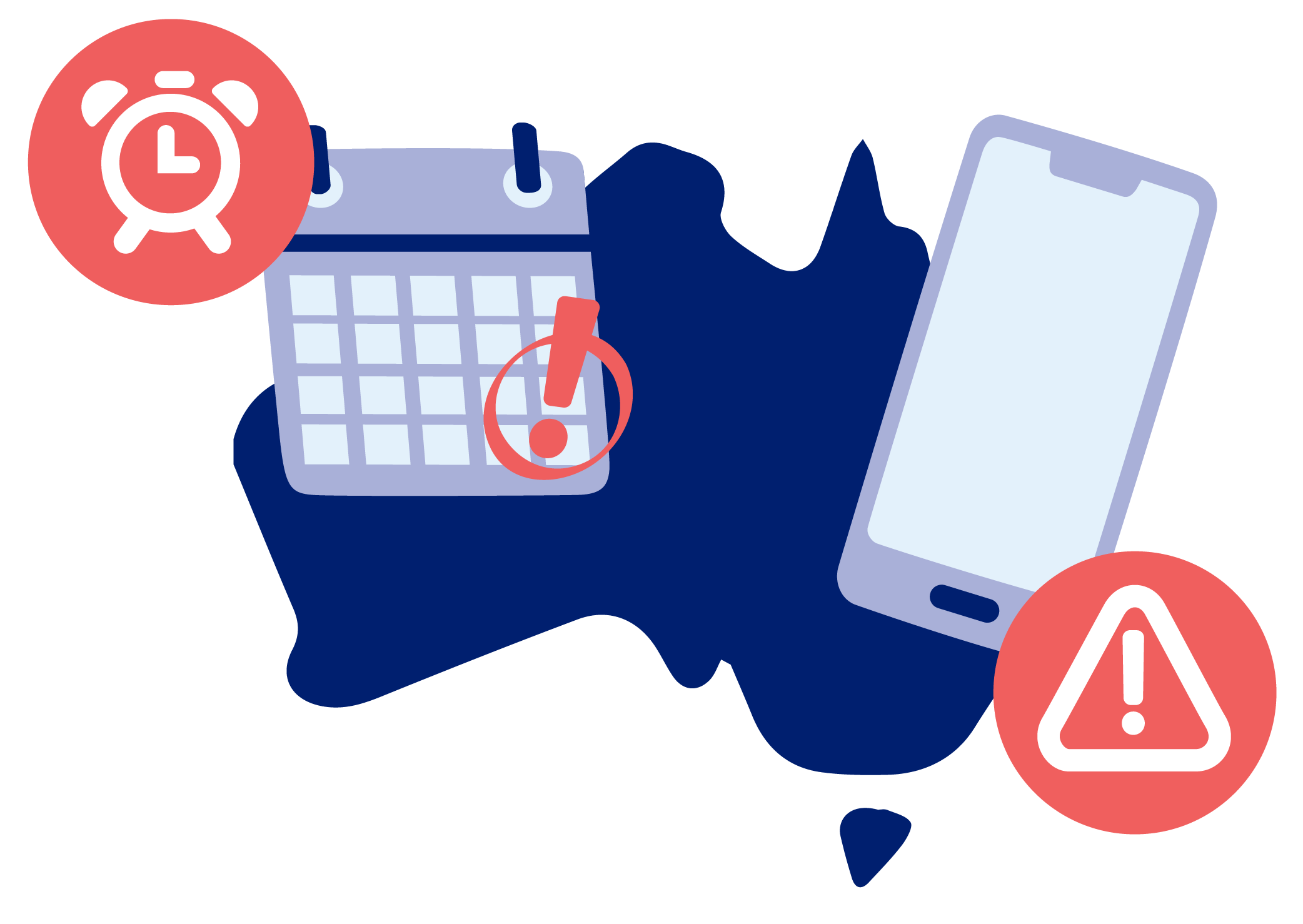Key Dates
Next Grant Round:
Applications for funding will open early 2025.
> Information about our Grants Program
Independent Grants Panel:
Results of the recent EOI will be notified Dec 2024.
> Information about our Panel
We can help: grants@accan.org.au
or phone 02 9288 4000
Subscribe to Grants Program mailings
On Friday 11 October, ACCAN CEO Carol Bennett and Deputy CEO Dr. Gareth Downing appeared before the Environment and Communications Legislation Committee. The Committee was hearing views on the Communications Legislation Amendment (Combatting Misinformation and Disinformation) Bill 2024.
The full transcript of their appearance can be found below, or on the Parliament of Australia website.
Read more: ACCAN Evidence to the Senate Hearing into Misinformation and Disinformation Laws
Write comment (0 Comments)The opinion piece below was written by ACCAN CEO Carol Bennett for the Canberra Times and Australian Community Media about draft anti-scams legislation. It was originally published on 27 September 2024.
Australians lost $2.7 billion to scams in 2023. These are scams we know about - the true losses are likely to be far greater.
The federal government has recently published draft scams prevention legislation (the Scams Prevention Framework), which will be put to the Parliament this year.
Read more: The government's scams prevention legislation has one critical flaw
Write comment (0 Comments)On 13 September 2024, ACCAN, the Consumer Action Law Centre, CHOICE and Super Consumers Australia welcomed an announcement from the Albanese Government that consultation on a draft bill - the proposed Scams Prevention Framework - will start today. The joint statement can be found below.
“I congratulate Assistant Treasurer Stephen Jones and the Albanese Government for pushing ahead with these scam reforms, and imposing tough obligations on industry to protect consumers, I want to thank him for this important work,” Consumer Action Law Centre CEO Stephanie Tonkin said.
Write comment (0 Comments)Notice is hereby given that the Annual General Meeting of the Australian Communications Consumer Action Network Limited (ACCAN) will be held via Zoom, on Thursday 26th September 2024 from 4pm.
Date: Thursday 26 September 2024
Time: 4pm (AEST)
Venue: Virtual Meeting via Zoom. Please register here by 24 September 2024
Read more: Notice of Annual General Meeting
Write comment (0 Comments)The opinion piece below was written by ACCAN CEO Carol Bennett for the Canberra Times and Australian Community Media about the 3G shutdown. It was originally published on 19 August 2024.
Many Australians are doing it tough right now and the challenges confronting rural and remote parts of the country are especially acute.
The bush has always struggled to secure essential services, be it doctors, teachers or trades. Communications services are equally essential.
Read more: Mobile phone overhaul literally a matter of life and death
Write comment (0 Comments) Australian telcos are turning off the 3G network
Australian telcos are turning off the 3G network
Australian telecommunications companies are closing their 3G networks to increase the capacity and speed of 4G and 5G services. Devices that only connect to 3G won’t be able to make or receive calls and texts or access the internet. Some early 4G devices are also impacted.
Read more: Quick steps to prepare for the 3G shutdown
Write comment (0 Comments)Nominations close Tuesday, 27th August 2024, 4:00 pm AEST (Sydney).
ACCAN is seeking nominations for Directors to fill two (2) vacancies on its Board.
In accordance with the ACCAN Constitution, the 2024-2025 ACCAN Board will consist of nine (9) members[1]. Seven (7) positions are continuing Directors from the 2023-2024 Board. One (1) Director is retiring from the Board having completed two full terms and is ineligible for re-election in 2024-25. One (1) Director has completed the first full term and is eligible for re-election. In accordance with Section 20 of the ACCAN Constitution, Board members are elected for a three-year term.
Read more: Call for nominations for the ACCAN Board
Write comment (0 Comments)A guide for consumers
The telecommunications regulator, the ACMA, has developed a new regulation called the Telecommunications (Financial Hardship) Industry Standard (the FH standard), which builds upon protections in the existing Telecommunications Consumer Protections Code (TCP Code). The FH Standard will commence on March 29, and compliance is mandatory.
Read more: Quick guide to the Financial Hardship Standard
Write comment (0 Comments)Further information for financial counsellors
The telecommunications regulator, the Australian Communications and Media Authority (ACMA), has developed a new regulation called the Telecommunications (Financial Hardship) Industry Standard (the FH standard), which improves protections in the existing Telecommunications Consumer Protections Code (TCP Code). The FH standard is mandatory, and will commence on March 29.
Read more: New Telco Financial Hardship Protections: A guide for financial counsellors
Write comment (0 Comments)The Australian Government is currently reviewing the future of the Universal Service Obligation (USO) beyond 2024. This blog post aims to answer some of the general questions consumers may have about this important consumer protection.
Read more: Better Delivery of Universal Services: Having Your Say on the USO
Write comment (0 Comments)The Australian Communications Consumer Action Network (ACCAN) is calling on the Federal Government to implement direct regulation, via a service provider determination, to protect consumers facing domestic and family violence.
ACCAN welcomed the Government’s decision earlier this year to enforce protections for financial hardship. Yet just as financial hardship should not be a reason Australians are forced to go without essential communications services, victim-survivors of domestic and family violence (DFV) should not be cut off from crucial means of communication due to the actions of abusers or as a result of poor practice on the part of service providers.
Read more: Consumers facing domestic and family violence must see better protections
Write comment (0 Comments)The resource provides a series of guidelines on how to make Word and PDF documents accessible and outlines a checklist to create accessible publications and presentations. It also lists the accessibility features of different online meeting platforms such as Zoom, Microsoft Teams and Google Meet, and identifies key physical, visual and audio requirements for accessible physical meeting spaces.
Read more: Accessibility Best Practice Guide
Write comment (0 Comments)


